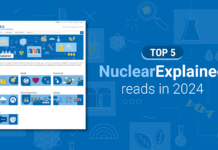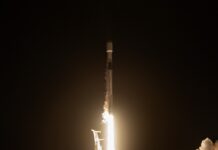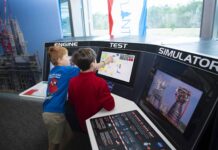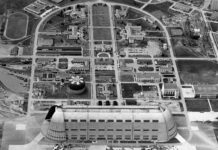NASA Funds 11 New Studies to Enhance Astronaut Health During Long-Duration Space Missions
NASA has recently announced funding for 11 groundbreaking studies aimed at understanding and improving the health and performance of astronauts during extended space missions. These studies, funded through the Human Exploration Research Opportunities 2024 solicitation, seek to address the physiological and psychological challenges that astronauts face during prolonged spaceflight. The selected projects do not require samples or data from astronauts in space and will be conducted on Earth.
The objective of these studies is to measure the responses of the human body and mind to various physical and mental challenges encountered in space. By doing so, NASA aims to mitigate the risks associated with team performance, communication, living conditions, decision-making, blood flow, and brain health. This research is crucial for ensuring the well-being of astronauts on future missions to the Moon, Mars, and beyond.
Selection and Funding
Out of 123 proposals, 11 were chosen based on their scientific merit and relevance to NASA’s human research roadmap. The selected projects are from 10 different institutions and have a combined funding of approximately $14.6 million. The duration of these projects ranges from one to five years.
Here are the investigators and their respective projects:
- Katya Arquilla, University Of Colorado, Boulder: This study, titled "Investigating Countermeasures for Communication Delays through the Laboratory-based Exploration Mission Analog," aims to explore strategies to overcome communication delays that can occur during space missions.
- Tripp Driskell, Florida Maxima Corporation: The "CADMUS (Crew Adaptive Decision Making Under Stress) and Crew Decision Support System" project focuses on developing and validating systems that support crew decision-making under stress.
- Christopher Jones, University of Pennsylvania, Philadelphia: This study, "Predicting Operationally Meaningful Performance with Multivariate Biomarkers Using Advanced Algorithms," aims to utilize advanced algorithms to predict performance using biomarkers.
- Jessica Marquez, NASA Ames Research Center, Silicon Valley, California: The project titled "Enhancing Performance and Communication for Distributed Teams During Lunar Spacewalks" seeks to improve team performance and communication during lunar spacewalks.
- Shu-Chieh Wu, San Jose State University Research Foundation, California: The study "Lessening the Impact of Interface Inconsistency Through Goal-Directed Crew Operations" aims to mitigate the impact of inconsistent interfaces on crew operations.
- Erika Rashka, Johns Hopkins University, Baltimore: Titled "Local Psychiatric Digital Phenotyping for Isolated, Constrained, and Extreme (ICE) Environments via Multimodal Sensing," this study focuses on using multimodal sensing to understand psychiatric conditions in extreme environments.
- Ana Diaz Artiles, Texas A&M Engineering Experiment Station, College Station: The project "Dose-response Curves of Cardiovascular and Ocular Variables During Graded Lower Body Negative Pressure in Microgravity Conditions Using Parabolic Flight" aims to study cardiovascular and ocular responses in microgravity.
- Theodora Chaspari, University Of Colorado, Boulder: The study "A Speech-Based Artificial Intelligence System for Predicting Team Functioning Degradation in HERA (Human Exploration Research Analog) Missions" aims to use AI to predict team functioning degradation.
- Ute Fischer, Georgia Tech Research Corporation, Atlanta: The project "Supporting Collaboration and Connectedness between Space and Ground at Lunar Latencies" aims to improve collaboration and connectedness between space crews and ground support.
- Xiaohong Lu, Louisiana State University, Shreveport: The study "Space Exposome Converges on Genotoxic Stress to Accelerate Brain Aging and Countermeasures to Mitigate Acute and Late Central Nervous System Risks" focuses on understanding and mitigating brain aging due to space conditions.
- Catherine Davis, Henry M. Jackson Foundation For The Advancement of Military Medicine, North Bethesda, Maryland: The project "NeuroSTAR (Neurobehavioral Changes Following Stressors and Radiation): Predicting Mission Impacts from Analogous Human and Rodent Endpoints" aims to predict mission impacts based on neurobehavioral changes.
Review and Selection Process
The proposals underwent a rigorous review process, involving subject matter experts from academia, industry, and government. This dual anonymous peer-review process ensured that the selections were based on scientific merit. NASA then assessed the top-scoring proposals for their relevance to the agency’s human research roadmap before making the final selections.
NASA’s Human Research Program
NASA’s Human Research Program is dedicated to developing the best methods and technologies to ensure safe and productive human space travel. The program conducts extensive research in laboratories, ground-based analogs, and the International Space Station. The goal is to understand how spaceflight affects the human body and behavior and to develop strategies to mitigate these effects.
This program is crucial as NASA continues to push the boundaries of space exploration. Understanding the impacts of spaceflight on human health is essential for the success of future missions to the Moon, Mars, and beyond.
Good to Know Information
Spaceflight poses unique challenges to human health due to factors such as microgravity, radiation, and isolation. Microgravity can lead to muscle atrophy and bone loss, while increased radiation exposure can increase the risk of cancer and other health issues. Isolation and confinement can affect mental health, leading to stress, anxiety, and depression.
NASA’s research aims to address these challenges by developing countermeasures and strategies to protect astronauts. For example, exercise regimens and nutritional plans are designed to prevent muscle and bone loss. Psychological support systems are implemented to help astronauts cope with the stress and isolation of space travel.
Industry and Public Reaction
The announcement of these new studies has been met with enthusiasm from the scientific community and the public. Researchers are excited about the potential to contribute to space exploration and to develop new technologies and methods that can benefit not only astronauts but also people on Earth.
Public interest in space exploration remains high, with many people fascinated by the idea of human missions to Mars and beyond. NASA’s commitment to ensuring the health and safety of astronauts is seen as a crucial step in making these missions a reality.
Conclusion
NASA’s funding of these 11 studies represents a significant investment in the future of human space exploration. By understanding and addressing the challenges of long-duration spaceflight, NASA is taking crucial steps to ensure the health and performance of astronauts on future missions to the Moon, Mars, and beyond. These studies will provide valuable insights and contribute to the development of technologies and strategies that will make space travel safer and more effective.
For more Information, Refer to this article.


































